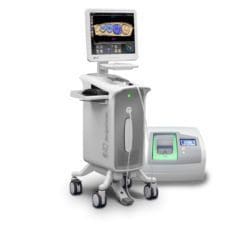Dental CrownsAn Overview
West Ashley Family Dentistry is home to two highly trained and experienced dentists, Dr. James Dickert and Dr. Agatha Lynn. We offer high-quality dental crowns that are custom-made to enhance both function and aesthetics.
Dental crowns can be used to address both cosmetic and restorative dental concerns with lasting results that will preserve the integrity of your natural smile. We are your top restorative dental care team, dedicated to restoring your smile.
Dental crowns can be made from a variety of materials, and we will recommend the most appropriate choice for you depending on the location of the affected tooth and your cosmetic goals. In most cases, color-matched porcelain or ceramic crown is suggested for both durability and a natural appearance.
Common dental crown treatments include:
- Damaged tooth
- Decayed tooth
- Misshapen tooth
- Discolored tooth
- Fix gaps between teeth
- Strengthen a tooth after a root canal or support a dental bridge
Same-Day Crowns in Charleston
 For many patients, the need for a new dental crown is due to tooth damage, decay, or the loss of a previous crown. When placing a traditional crown restoration, two separate visits were required before you could walk out with your permanent crown and a functional smile.
For many patients, the need for a new dental crown is due to tooth damage, decay, or the loss of a previous crown. When placing a traditional crown restoration, two separate visits were required before you could walk out with your permanent crown and a functional smile.
Dr. Dickert and Dr. Lynn use advanced CAD/CAM technology to offer the best possible result without the wait. There is no need for a temporary tooth cap. This innovative technology works by using E4D technology to scan an image of your compromised tooth.
Our doctors use this digital image to design and create a custom dental crown before sending it on to our in-office milling system. We can design, create and place a high-quality dental crown during one visit and send you on your way with a functional, comfortable smile.
Digital technology, something we embrace at West Ashley Family Dentistry, enables us to provide the best possible patient experience with more accurate treatment planning, comfortable procedures, and lasting results.
The Uses of a Dental Crown
Dental crowns play an important role in restoring and protecting teeth. Dentists use crowns for various reasons, from fixing broken teeth to supporting dental bridges.
Restoring Damaged Teeth
One of the most common uses of dental crowns is to repair teeth damaged by decay, injury, or wear. When a tooth has a large cavity that cannot be fixed with a filling, a crown provides the extra protection to prevent further damage. Crowns are also used when a tooth is cracked or broken. Without a crown, a damaged tooth may weaken and eventually require extraction.
Teeth worn down by grinding or clenching can also benefit from crowns. The crown restores the tooth’s original shape and size, allowing it to function properly again.
Protecting a Tooth After a Root Canal
A root canal removes infection inside a tooth, but the procedure can leave the tooth weak. Dentists often place a crown over the treated tooth to protect it from breaking. This strengthens the tooth and allows it to function like a normal, healthy tooth. Without a crown, a root canal-treated tooth may crack over time.
Supporting Dental Bridges
A dental bridge replaces one or more missing teeth by anchoring to the teeth on either side of the gap. These anchor teeth, called abutment teeth, must be strong enough to support the bridge. To ensure their durability, dentists place crowns over them. The crowns provide a solid foundation, helping the bridge stay secure while restoring the ability to chew and speak properly.
Improving the Appearance of Teeth
Crowns are not only used for strength and function—they also improve the appearance of teeth. A crown can create a more natural and attractive look if a tooth is severely discolored, misshapen, or uneven. Dentists often use porcelain crowns for front teeth because they closely match the color and texture of natural teeth.
Strengthening Dental Implants
A dental implant provides a permanent solution for patients missing a tooth. The implant is a small titanium post placed in the jawbone, but the visible part of the replacement tooth is a crown. The crown is attached to the implant, completing the restoration and allowing the patient to chew, smile, and speak confidently.
